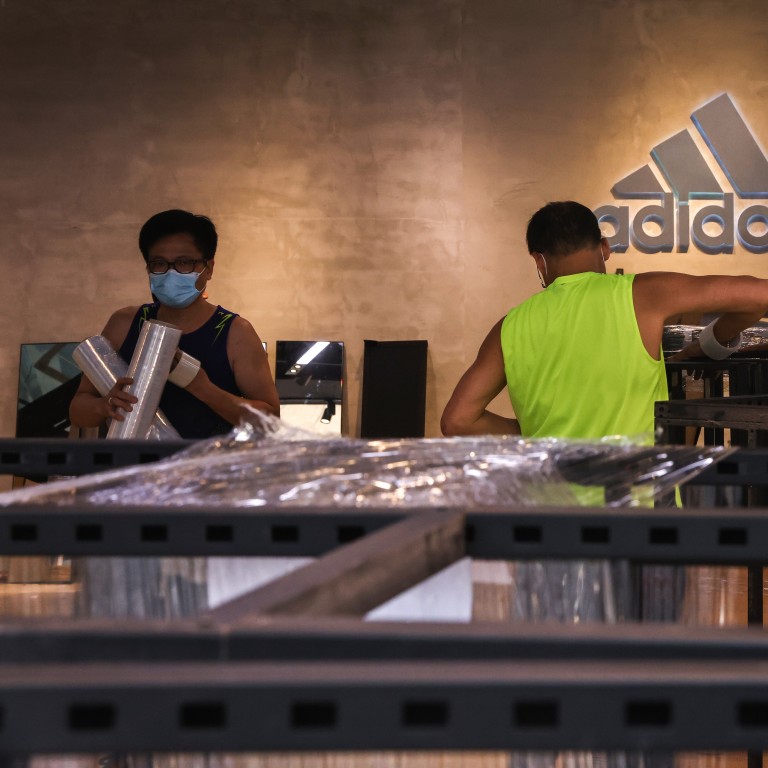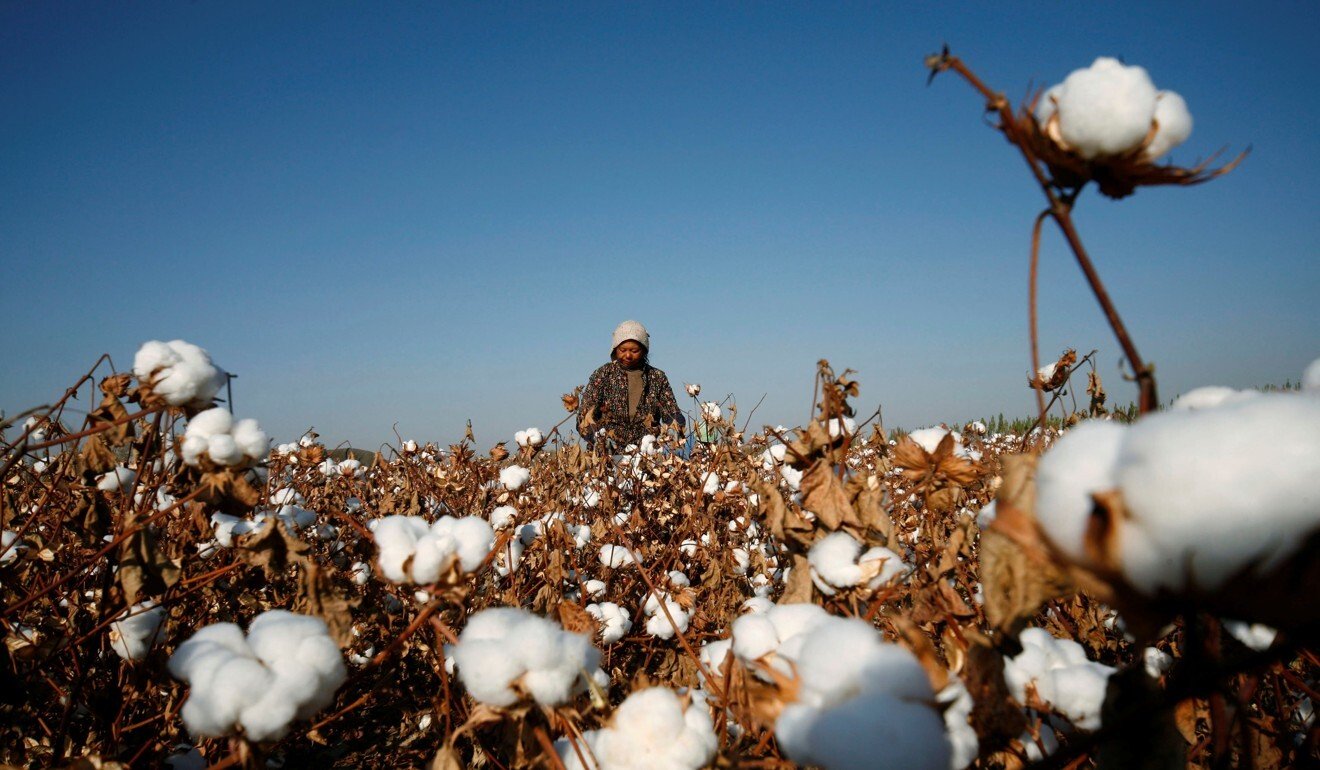
Adidas, Nike see online sales plunge in China amid Xinjiang boycott although analysts say trend could be short-lived
- Mainland consumers turn to Chinese sportswear competitors, such as Anta Sports Products and Li Ning, amid furore over Xinjiang cotton
- Online sales plunge for Western sports brands in China underlines dilemma over use of Xinjiang cotton but analysts say trend could be temporary
Sales in the Adidas store on Alibaba Group Holding’s Tmall – China’s largest business-to-consumer e-commerce platform – slumped by 78 per cent in April from a year ago, while Nike’s dropped by 59 per cent, according to analysis done by Morningstar in a note released Wednesday. Tmall sales of Fast Retailing Co.’s clothing brand Uniqlo, which was also targeted by the boycott, dropped by over one-fifth.
Mainland consumers instead turned to Chinese sportswear competitors, including Anta Sports Products and Li Ning Co, that have supported using materials from the contentious far west region.

02:46
UK parliament declares Uygurs suffering ‘genocide’ in China’s Xinjiang
China Lining – Li Ning’s premium fashion arm – was by far the biggest beneficiary of the nationalist turn, with its sales on Tmall jumping more than 800 per cent in April, Morningstar said.
“Tmall is the single largest sales channel for the many brands in mainland China now and a leading indicator to what is selling well,” said Bloomberg Intelligence consumer analysts Catherine Lim and Eric Zhu. “Based on our checks with sportswear companies as well as their distributors, contribution from the platform alone accounts for more than 10 per cent of revenue in the country.”

The boycott’s powerful impact underscores the dilemma facing foreign brands for whom China is an increasingly important market, yet are held to account on human rights issues by consumers in their Western home countries.
Chinese consumers have become a growth driver for global brands as the country roars ahead economically after stamping out Covid-19. But patriotism among mainland shoppers – benefiting domestic brands – is also at an all-time high given China’s thorny relationship with Western nations over everything from trade to the pandemic.
What is going on in Xinjiang and who are the Uygur people?
Revenue from Greater China amounted to nearly one-fifth of Beaverton, Oregon-headquartered Nike’s sales in its 2020 financial year ended May 31, and nearly a quarter of net sales for Adidas. Herzogenaurach, Germany-based Adidas is expected to report its first-quarter earnings on Friday. While there is no information on what share of total sales is transacted through Tmall, the platform is a major presence in China retail.
Still, there are signs that local brands are not yet considered substitutes for the global giants. Overall Tmall sales of sports apparel and footwear declined 11 per cent in April compared to a year ago – a steep drop from more than 30 per cent growth in the last quarter of 2020 – according to Morningstar. This suggests that some consumers are waiting out the boycott rather than bypassing the brands entirely.
Chinese consumers’ current shopping behaviour was “most likely temporary,” said Morningstar equity analyst Ivan Su.
“As there aren’t renewed attacks from state media, consumer boycotts against Nike and Adidas should most likely fade over the next months,” he wrote.
Brand ambassadors in China cut ties with companies including Nike, Adidas and Uniqlo, and H&M had some of its stores forcibly closed by landlords.

